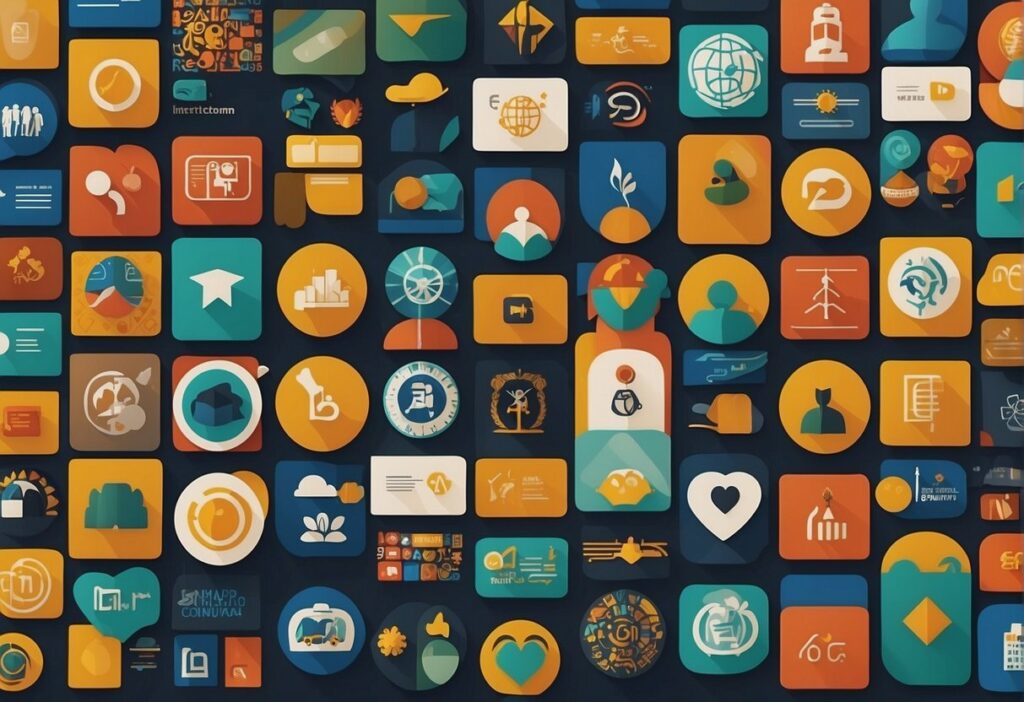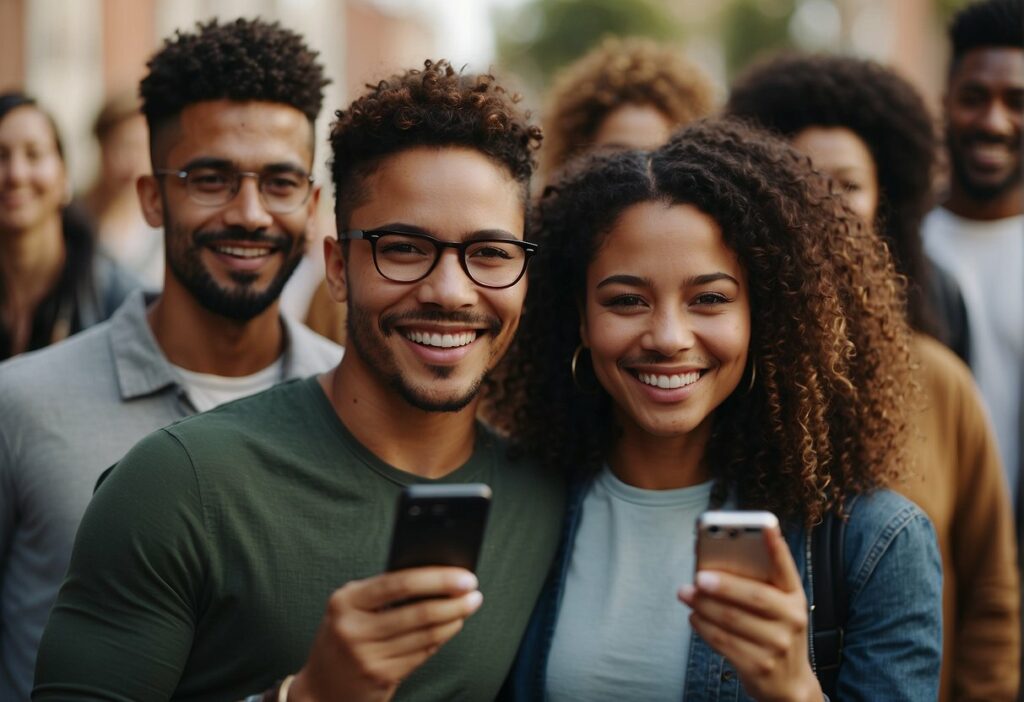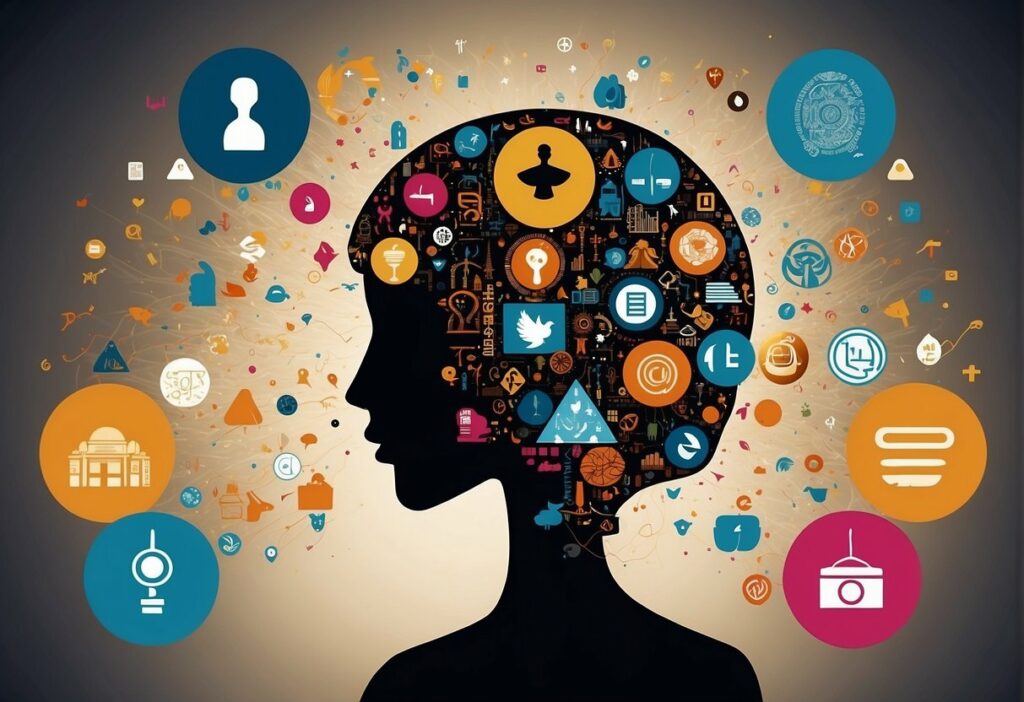The Positive Side of Social Media: How It Fosters Community and Encourages Support Networks

Social media often finds itself at the center of debate for its effects on mental health and societal dynamics. Yet, amidst the critiques, it also presents a compelling case as a catalyst for positive change through the formation of communities and support networks. This dimension of social media harnesses the power of connectivity, enabling individuals to join together based on common interests, values, or shared experiences, transcending geographical and cultural barriers in the process.
These platforms have become havens for niche communities and support groups, offering spaces where users can seek advice, share stories, and find belonging. Be it through a hashtag movement or a dedicated group, people are finding solace and solidarity online. For those facing challenging circumstances, such as rare diseases or personal crises, social media serves as a conduit to others who understand their situation, often providing a lifeline that is otherwise unavailable in their immediate physical surroundings.
Moreover, social media’s role in community building is not limited to support; it also fosters collaboration and mobilization for social causes. Campaigns for social justice, environmental activism, or fundraising for charitable causes have all benefited from the amplification and organizational capabilities that social platforms provide. They have enabled individuals to unite in pursuit of a common goal, creating an impact that resonates both online and offline.
Empowerment Through Information and Learning

Social media platforms have revolutionized access to information, enabling users to learn and grow intellectually. They house a wealth of knowledge that spans every conceivable interest and profession, fostering an environment of continuous personal and communal development.
Knowledge Sharing Platforms
Platforms like Quora and Reddit are prime examples of social media spaces that encourage knowledge exchange. Individuals on these platforms can:
- Ask questions to a community of experts and enthusiasts.
- Receive diverse perspectives on various subjects.
- Share personal experiences and insights to contribute to the collective knowledge base.
This constant exchange of information on these platforms empowers users to expand their understanding on a vast array of topics.
Educational Resources and Opportunities
Social media also serves as a gateway to numerous educational resources. Many institutions and educational bodies post content on platforms like YouTube and LinkedIn, providing free access to:
| Educational Content | Platform Examples |
|---|---|
| Lectures and Webinars | YouTube, Facebook Live |
| Professional Skills Development | LinkedIn Learning |
| Academic Courses | Coursera, edX |
These resources offer opportunities for users to acquire new skills, improve their qualifications, and enhance their employability. Additionally, many of these platforms offer completion certificates that can be showcased on professional profiles, helping users to advance in their careers.
Social Support and Community Building

Social media excels in connecting individuals with common interests, creating spaces for support and interaction that can bridge vast geographical divides.
Niche Communities and Groups
Social media platforms host a plethora of niche groups that cater to specific hobbies, professions, or interests. Users can find and join groups where they can share experiences, exchange knowledge, and form connections.
For example, Facebook has Groups for everything from rare plant collectors to local cycling clubs. These communities provide a sense of belonging and a forum for members to engage deeply with their passions.
Support Systems for Mental Health
Platforms like Twitter and Reddit have become vital in offering support systems for individuals dealing with mental health issues. Hashtags and subreddits create accessible spaces for discussions about mental health, where users can find camaraderie and empathy.
#MentalHealthAwareness on Twitter, for example, allows users to follow conversations and resources pertinent to their well-being. Additionally, mental health professionals sometimes moderate these online spaces to provide guidance and debunk misinformation.
Networking and Professional Growth

Social media platforms allow individuals to showcase their skills and acumen, creating opportunities for professional development and networking. They serve as a modern-day forum for exchanging ideas, setting the stage for partnerships, and fostering growth.
Career Development
Professional profiles on platforms like LinkedIn can highlight an individual’s expertise and experience, opening doors to job opportunities. Recruiters often search for candidates with specific skill sets and experience, making a well-curated online presence invaluable. Webinars and online courses shared through these networks further aid in continuous learning and upskilling.
Industry Connections
Social media enables professionals to connect with peers, mentors, and industry leaders, which can often lead to valuable discussions and knowledge exchange. Networks like Twitter provide real-time interaction with thought leaders, allowing users to engage with current industry trends and insights.
Collaborative Projects
Platforms like GitHub offer a space for developers to contribute to open source projects, while artistic communities can coalesce on networks such as Behance. These collaborations often result in shared projects that bolster a professional’s portfolio and demonstrate their contributions to a broader audience.
Activism and Social Change

Social media significantly amplifies the impact of activism and social change by enabling rapid information dissemination and community mobilization. These platforms have become pivotal for initiating and sustaining social movements and awareness initiatives.
Grassroots Movements
Grassroots movements have found fertile ground on social media. Platforms like Twitter and Facebook allow individuals to quickly organize protests, rallies, and petitions. For instance, the #MeToo movement gained global traction on social media, empowering individuals to speak out against sexual abuse and harassment. Evidence of its reach can be quantified by the millions of mentions across platforms within a short span of time.
- Organizational Tools:
- Hashtags (e.g., #BlackLivesMatter)
- Event Pages
- Live Streaming
Case Study: The Climate Strikes organized by youth around the world were largely coordinated via social media, leading to widespread participation and media coverage.
Awareness Campaigns
Through awareness campaigns, social media educates and informs the public on critical issues. Platforms provide a space for sharing stories, facts, and statistics that can foster understanding and sympathy. Campaigns like World Mental Health Day utilize social media to debunk myths and promote mental health resources.
- Information Dissemination:
- Infographics
- Videos
- Personal Narratives
Example: The ALS Ice Bucket Challenge raised substantial funds for research and drastically increased public awareness about the disease through viral videos and challenges.
Creative Expression and Sharing

Social media platforms have revolutionized the way individuals express themselves and share their creative work with a global audience. They bridge geographical gaps, allowing content creators to reach diverse audiences and engage with other artists.
Artistic Communities
On social media, artists across various disciplines find a communal space to display and critique one another’s work, fostering artistic development. Platforms like Instagram and DeviantArt boast extensive networks of visual artists, while sites like SoundCloud and Bandcamp are havens for musicians. Artists use these spaces to:
- Showcase their portfolios
- Connect with peers
- Exchange feedback
- Gain inspiration from worldwide trends
- Collaborate on projects
Content Distribution Channels
Social media serves as a powerful distribution mechanism for creative content, offering a variety of channels tailored to different media types. YouTube channels, for instance, cater to video creators, while podcasts become widely accessible through platforms like Spotify and Apple Podcasts. The advantages include:
- Wide reach with minimal cost
- Real-time engagement with audiences
- Data and analytics on viewership and listener behavior
- Opportunities for monetization through ads, sponsorships, and merchandise sales
Diverse Perspectives and Inclusivity

Social media has emerged as a powerful platform for showcasing and celebrating the tapestry of human experience. It enables voices from different backgrounds, cultures, and life experiences to share their viewpoints, fostering a rich exchange of ideas. The inclusivity of social media allows for an array of perspectives to be heard, especially from those who might be underrepresented in traditional media.
Representation Matters: On social media, individuals from marginalized communities find representation that resonates with their identity. This visibility not only affirms their experiences but also educates others, promoting empathy and understanding.
- Personal Narratives: Sharing stories has a profound impact, offering insights into the struggles and triumphs of diverse groups.
- Cultural Exchange: Users interact with content that broadens their cultural horizons, leading to greater appreciation of global diversity.
Accessibility: Social media platforms often provide features that help make content accessible to a wider audience, including those with disabilities.
- Closed Captions and Alt Text: These tools help users with hearing or visual impairments engage with content.
- Language Options: Translation features help to overcome language barriers, uniting users across the globe.
Community Support: Online communities form around shared interests or identities, creating safe spaces for connection and support.
- Support Groups: For those facing specific challenges, social media groups offer a network of peers and resources.
- Affinity Networks: Whether based on profession, hobby, or identity, these networks empower individuals to share expertise and encouragement.
Constructive Discourse: Social media serves as a forum for healthy debate, allowing individuals to present and encounter diverse viewpoints. This can lead to increased awareness and shifts in public opinion.
In summary, social media’s inclusivity and ability to present diverse perspectives contribute significantly to worldviews, empathy, and collective knowledge.

